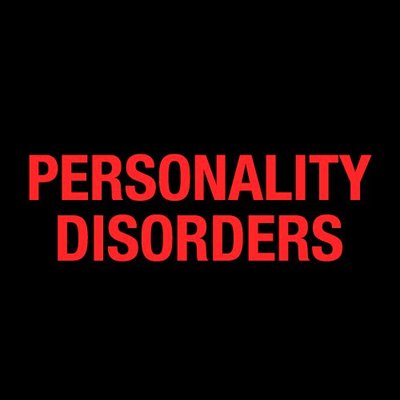Below is a text generator based on the GPT-2 language model. This generator was trained on the Artforum archive's reviews, previews and critics' picks. You can read our documentation on how to build a GPT-2 text generator here.
You can access the generator at any time by clicking on the + symbol in the upper right hand corner of the header.
Below is a conversation that took place on Discord between July 19 and July 20, 2020. The conversation has been edited for clarity. The participants are:
 Paige K. Bradley, a writer and former editor of Artforum.
Paige K. Bradley, a writer and former editor of Artforum.
 Geoffrey Mak, a writer and contributor to Artforum.
Geoffrey Mak, a writer and contributor to Artforum.
 Andrew Thompson, who has not written for Artforum.
Andrew Thompson, who has not written for Artforum.
 Cade Diehm, who has not written for Artforum.
Cade Diehm, who has not written for Artforum.

I scraped all of Artforum almost a year ago now initially as a way to do some kind of work on the nature of art writing, and awhile later Jules got in touch with me because he had used the somewhat recently released GPT-2 model for text generation on a Pitchfork dataset we had on the site
GPT-2 is the model created by OpenAI that was like this "too dangerous to release" Natural Language Processing model that they then decided to release anyway lol
It became notable early on for being able to produce uncannily human-like text unlike basically any model that was previously used
so we decided to apply the model to the whole Artforum dataset, which stretches back from the first Artforum piece back in what like 1960-something to I think January 2019
so that's what the generator on the page is
and what I wanted to do was basically display the generator to people both at Artforum and not and get some sense of their reaction to it, to the nature of the texts it's producing, etc

Does that choice reinforce the industry assumption that what Artforum produces is what writing about art looks like?
Does that perception still exist?


It's been around for long enough

and i think that in going back the furthest it has some kind of claim to be fairly representative of an established way of writing about, discussion and even conceiving of what art is

And so did you have particular questions in mind that you wanted to see if the generator would answer, in a sense? Or was it more open-ended, like, "what would that look like?
Reading what the generator produces, did anything stand out to you, were you surprised, or do the results end up looking like something that would be in Artforum to you? Do they feel authentic?

they felt strikingly authentic to me
the quirks and occassional repetition/errors notwithstanding


again the very very short answer

I wonder if a parallel could be drawn between this training, which seems to me like a kind of mimetic process, showing an example and then the manifestation of success/intelligence is reproduction or imitation, with an editorial process.
Or, we have idea of what art writing is. Or what Artforum produces, and the value of that. Which is lineage-based.
Reading the corpus has implicit instructions on how to write the corpus
An editor tweaks a text to hew towards a target
Which is their own amalgamated variation, in a sense, on what the AF text is
Or should be


The writer must learn what is desired from their text.



and to me the GPT model can function as a prompt to ask that very question, which is what it means that the process of producing these texts as a human often follows the same mimetic route as the AI

I want to say more about this idea of formula/formats and mimesis/performing and how the subjective or "authentic" voice can operate along these mimetic routes. But also for context/the record/any future reader of this, I think it matters to be clear where I'm speaking from and my own degree of familiarity with all this. I've written for Artforum since 2013, and was an editor there from 2014-2018.
However, I came into this actually without "training" per se. In terms of routes, most people who write for AF have degrees in art history, master's level or PhD, and same for staff editors. Or they studied writing/journalism/a related humanities. Generally this means at minimum bachelor's degree. Ok probably a big 'no duh' from anyone on that.
I have a BFA in printmaking. I'm an artist. I never studied writing and I came into this essentially self-taught.
I learned how to write for Artforum by writing for Artforum. Or for some reason I already knew how without instruction. To the degree that I was sat in a chair and given texts to shape into AF texts, with some familiarity and a competent understanding of the material, but unlike an AI, which is fed everything, presumably, I can tell you I haven't personally read everything that AF has ever produced lol
So, here's a question that might emerge: how much information is needed to reproduce the style, ethics, or voice of what's considered a specific type of writing?
Or, if GPT-2 is fed everything from Artforum, it produces the texts it does now. Which includes a long list of writers, of varying quality, a house style, certainly.
What if GPT-2 is only fed Bruce Hainley's body of work for AF?
Or Rhonda Lieberman?

But the more GPT-2 is given, the less absurd its outputs are

What if it was fed only the extraordinary?


The Loser Thing!
September 1992 man

like the mag and website have way more small reviews than long features
and we also decided to omit straight news stories about a new curator talking the helm at the omaha museum of art etc
basically all the language model does is predict what the next word is going to be
so the first word in every text is nothing, there's no word
the generator then decides what's likely to come after nothing, and it does so stochastically so that it's not the same result every time (hence why it's non-deterministic)
so it decides that after nothing, the first word is "Since
then it decides what comes after nothing-Since and decides it's the
then it decides what comes after nothing-Since-the, and so on

I felt that.
I, too, base my entire creative process on that.
Maybe I need to hang out with text generators more.
I could learn a lot.
I've gotten all I could from the writers!


It's pointless! I love reading about art but I also hold two thoughts in mind at once, that this is a whole lot of nothing. And it piles up.
Like a history.
Some people say something is pointless as a point of criticism though. I only like pointless things though, sadly.
And with joy.


And I'm obsessed with this line: "This is totally poetic, because poetry always says the stuff that’s extra, as if the universe appreciates it.
I would say that this is not what most art writing reads like. Or at least not art reviews.
So I was interested in thinking about how the generator flattens out something I would call unique, into the most typical, recurrent styles.
Because that's the majority.
And a writer who actually has their own way of writing about art, or a distinctive voice or style, is rare, I would say.
Most art writing is formulaic
Here's a question: does the generator possibly just reflect back what we already know? Does the automation reveal the automated, DOA style of most art writing? But is that a revelation, and if so, to who?
That's off the top of the noggin




the thing is that passing through those institutions (MFAs, PhDs, elite schools) requires one to actually become a formula to succeed in those institutions. This is something Barrett Brown and I talked about with the growing predominance of people at elite schools in journalism https://components.one/posts/pedagogy-of-the-press-barrett-brown-new-york-times

As institutions of higher learning are essentially teaching class training, as much if not moreso than information. The latter of which you can get at the library.
If your libraries haven't been defunded yet that is...
But so if the institution is required to teach writing, to teach about how to write about art, then on a logical level of inputs to outputs it doesn't even compute that I was an editor! Would an algorithm have predicted it? Yes I went through art institutions (CalArts, RISD), but I wasn't in any training for writing/discourse per se. My education was distinctly marked by a kind of "we just want to make cool/sexy art", perhaps due to the age of my peer group in undergrad. So how was I rolling up for four years to edit texts from people with masters degrees/PhDs? It doesn't add up. Routing people through paths of learning, as if that will turn them into generators of the thing needed, doesn't work in reality, I don't think. But actually I think what I'm trying to think through here is something about autodidactic doing. The generator just does something, based on what's given, but it can't produce something of interest or value automatically. It lacks something, but so do people.
What is lacking in the failure of the generator to produce something unique, and writers' failure as well. Is it a common flaw, or are these different flaws?
It can reproduce some of the worst qualities of art writing, like a kind of insider-y, assuming voice, e.g. here
as we all know
This is a generator text, but I still felt for a moment JUDGED and DUMB for not knowing what I should have known, according to the authorial voice suddenly before me
That's funny!

what i find really fascinating over the years is how this is something that seemingly everyone acknowledges about art writing and yet it just continues as a convention
so your remark "The generator just does something, based on what's given, but it can't produce something of interest or value automatically. It lacks something, but so do people.
seems to be because what is taught is to literally follow a set of steps
not to cite our own shit too much but it's how we wind up with bodies and spaces https://components.one/posts/production-of-space



Right, you learn through mimesis how to perform expression.
Which is fundamental, but that brings up masking, which is a protective technique when actually no one is helping one learn how to be, or how they could be
Just to be like whatever is necessary

my personal experience of a lot of the artworld's participants is as straight up sociopaths the way AI is, a system that is optimized solely to win a game
like the way AlphaGo can do nothing but win at Go


i don't know if you're familiar with that piece An Oak Tree
i find it important because it was one of the early examples of translocating artistic value in textual argumentation instead of the object, and that all the actual artistry would henceforth be located in placards.
there's a great detail about this in the wiki
because yeah, there isn't a fucking tree in that jar
and it feels like the entire discipline has had this weird self-loathing for the past like 20 or 30 years now where even they don't believe there's a tree in the jar anymore, the reigning sentiment among even participants in this very space is that all of its totems are predatory institutions designed to create value for pedo art collectors and little more

I'm thinking more about the project, though. And it seems that the AI can detect certain patterns in the Artforum house style. But the AI (to my limited experience) can't mimic the experience of being moved by aesthetic experience and representing it in prose. I'm thinking of one of my editors Chloe Wyma's review in the current issue. Paragraphs like these are really exceptional:
"If Morris’s evacuated landscapes and foreclosed views, as Searle wrote forty-two years ago, led us to “infer a somehow sacrosanct ‘humanist’ or ‘Existential’ content,” today they seem almost too resonant with the vacant street I see from my apartment window, the blanketing stillness perforated by ambulance sirens, and the atmosphere of a world hollowed out. This reading—sentimental, ahistorical, unavoidable—is compounded by the flat interface of my computer screen (another window), which so efficiently exchanges substance for appearance, objecthood for representation. Morris labored over his work for years and rarely let anyone, with the exception of his wife, into his studio. It feels obscene, maybe even fraudulent, to write about this private, intense art at such a remove. But this impoverished mode of spectatorship also heightens the contradictions that give Morris’s work its tensile charge, poised between repellent surface and seductive illusion, dense matter and mythic image—between the “desire to create a world in one’s work in which one could live” (as the artist wrote in 1981) and the knowledge that living there, or anywhere else, means living with distance, mediation, and displacement. As the artist once put it, “We necessarily experience the world through our bodies, we have as it were a view from a house of blood.”

Or loathe themselves for participating, sure.
I don’t hate myself! For the record.
But textual argumentation, yes, I’ve argued often that art is mostly about writing now. The recent Whitney Biennials have been about letters and critiques and counter critiques. There’s so much to read who has time to look, much less see.
The context in which art takes place has become overbearingly dominant, yes, but that’s also due to structural systemic issues around funding, access, purpose.
But in terms of writing, I would say quite a lot of the art I hold most dear, that has had and continues to impact my life, is intimately tied to writing. And that work isn’t new or recent.
Thinking of Mike Kelley’s performance writing, his video scripts, or even just statements and interviews he gave about his own work.
David Wojnarowicz, an untrained artist and writer, his writing just flys off the page and throttles your skull.
I can’t separate Hannah Wilke’s work from the instance she wrote “I want to overwhelm you”
Museums putting up placards to tell you what the work is doing is I think moreso about trying to control the narrative of works and art.
Because authoring narrative and owning those stories is in a sense the main control valve for them, maybe even moreso than owning the object.
I’m not sure that’s the same thing as saying art or artists abandoned aesthetics for text or argument. That was part of the visual appearance in conceptualism at a certain time and maybe even place, but has text on a wall ever been the only game in town, as it were?
Here’s a point I want to make though that loops this back around to the text generator. Art writing is full of humdrum garbage, with what I would consider singular voices/notable intellects sprinkled amongst, and the generator by feeding on vast quantity seems to equalize or mediate between all, to turn out a digestion that reflects back the most rote qualities of the source texts. That’s useful in a sense, but I don’t see it as a condemnation of the ongoing effort by writers to articulate what is happening in a work or body of work by an artist. This response is essential to art, I think, because it’s modeling the idea that when an artwork rolls up we have any kind of responsibility to it besides not physically damaging it.
The artist makes the thing, someone else ideally pitches in to place it in the vicinity of people who could care, and now there is work to be done.
There is an ideal, and maybe it’s just my own, that at least half of the work, of the total work that actually constitutes the artwork, is done by the viewer.
I feel a responsibility to a work, even if I don’t have an actual work assignment per se to represent it. Someone made this, it must be engaged with in best faith, and even if eventually one concludes that it is Not Good, you should be patient about arriving at that dismissal.
There are these kinds of broad, generational critiques that go like “well in this era the art was this but now it’s like that and we don’t like that” and I’m always suspicious of such.
And so when someone says “art writing,” ok some people are thinking about magazine reviews. I’m thinking about how text is literally projected onto Lee Kit’s paintings.

and the different functions of art writing, both as a conceptual or execution element within a piece itself, but also the various forms it manifests


I've sort of existed on the outskirts of the art world for a long time, and I sort of feel this deep numbness to much of what I've viewed or read up on. As I browse this algorithm's reviews, I feel the same kind of numbness. Not just an alienation to the review, but an alienation to the work that's detailed in the review
When Andrew was showing me the early tests of the generator, I couldn't really reconcile the uncanny valley nature of what it generates. OpenAI has a new version of GPT out –– GPT-3, which is all over the internet right now for its supposed accuracy, but when I view outputs from both GPT 2 and 3, I'm reading into an emptiness.
Part of this is definitely from the nature of this project's execution, and my technical understanding of how it works. But I still can't quite reconcile the reaction I have to these synthesised alternative universe works.
https://components.one/generators/artforum/0Oi7gtOJqqAc7HB6qtHg
If we step away slightly from the deeper exploration of writing and authors and so on, what feels so raw to me here is the uncertainty of my own reaction to it. On one hand, it's clearly somewhat absurd in its vague nonsense, but I remain deeply drawn to these 'alternate universe' art pieces, and my own reactions to what they might look like. They resonate strongly with me, but what I feel is a similar kind of greyness.
What I feel is a sort of synthesized hyper-reality. The same sort of thing that I feel when I see, for example, the amount of work that's been taken to create the uncanny reality of the NaturalVision Evolved Grand Theft Auto mod: https://www.youtube.com/watch?v=-S24gQntcWg
Increasingly disillusioned with cities and their aesthetic landscapes, yet somehow enthralled by these weird mimickries.
Its hard to unpack this response to hyper real Grand Theft Audio and GPT Artforum. Are they drawn from a similar place as Geoff's Edgelords of participatory alienation, where my discordant anxiety is the product of a social and political void? I don't think so, even if I am someone who has resoundingly jettisoned my own career in design for similar reasons. Is this a defence mechanism to the increasing misalignment I feel towards built environments? It's cliche to veer off towards back to natures meme, whether it's simplistic fantasy of life as a trad-girl or being deeply thrilled by an under-developed solarpunk aesthetic.
Regardless, I feel the same when I browse Deepfake ArtForum as I do in within these spaces themselves. And I don't know why.


The essay can be found here: https://medium.com/@geoffmak/edgelords-23da0277730d
It took me four years to write the essay, and since publishing the essay at the end of last year, my thoughts on it are continuing to evolve beyond my original intentions. Like, for instance, I think now the essay senses (rather than articulates) a new hermeneutics created by social media and platform capitalism. How art is valued has been irretrievably changed in this recent platcap decade we've emerged from.
But to be clear, it's not a work of criticism. And—bringing it back to the topic of the text generator—my essay senses/intuits a sort of rift from traditional art criticism (emblematized by Artforum or eflux, which is quoted in the piece) and the art that is being made right now. I find comfort in the prose of traditional art criticism (like I just bought the new Hal Foster book and a ridiculously excited to read it) partly because it feels nostalgic and comforting, as if an old world were still relevant. But it's not. I'm not sure we have found a new prose to describe this new hermeneutics conditioned by platcap/social media.


I personally really enjoy reading art criticism, and found that with a lot of my free time during the pandemic, I did return to a lot of art texts that excited me. Even reading Paige's description of Rhonda Lieberman excited me, as a lot of her prose has from the magazine over the years. But there is a huge range of accessibility in Artforum's archive. Even an writer like Hannah Black will slide along the accessibility scale—some of her stuff is extremely cogent, intended for a popular audience, and some of it is completely impenetrable and leaves me cold.

to me, the void-like reaction Cade has to the generated texts is reacting to one step of abstraction beyond something that's already hyper real
so GTA 5 is a simulation of los angeles, which itself is already a simulation. the simulation of a simulation is kind of a new order of simulacrum. and i think the GPT reviews trigger a similar reaction for the same reason---not simply because they're false, but because the data they're trained on is false to begin with


I don’t think there actually is per se. There is a history of writing about it, and so perhaps you can go to Stanford and Harvard and they will demonstrate what John Ruskin was doing.
That could be interesting and meaningful.
But I think that’s one way, and trying to imitate October theorists from the 1970s is an abstraction.









I mentioned Lieberman’s Diaries yesterday as well.
Though that specific column’s energy, and critiques of it, both feel like they have subsided at this point, perhaps appropriately.

because what I read in your work Geoff was among a lot of things, a kind of howl from the corruption of the artworld at large, which is not an unusual reaction one would has toward it but which you seemed to share

Are the people over in physics complaining that a lot of their colleagues are just greasing their field’s wheels as well, with pointless papers?
Wouldn’t any industry have its babbling chatter?
Its needless overproduction of hot air?
And does all that discourse served cold become easily ignorable then, like a whole lot of silence, if nothing is being said?

But yes, Paige I agree that ppl feeling cold about the mumbo jumbo is not a new condition and is certainly not unique to the art world

which is why i ask about geoff's reaction towards a corrupted artworld, wondering A) what encourages continued participation in it and B) what a non-corrupted version of it would look like

Has it been otherwise? When?
There’s always an oldster to tell you things used to be better.








There are many shows happening at once.
I’m frustrated that anyone who does not feel that way about aesthetic experience is in any way involved in art.

so like not to be a dick and quote him but it kind of all goes back to the nietzschean idea of the universe only being justified as an aesthetic phenomenon
and i think your standard artist and art writer and anyone within the artworld would at least agree with that on its face

Oh interesting. Could you explain more about "the nietzschean idea of the universe only being justified as an aesthetic phenomenon" bc I'm not familiar with it

a lot of his philosophy was based on the thought experiment that you'd have to live your same life over and over for all eternity
and the only way to justify that phenomenon of living over and over again was to basically see the universe as art
and for nietzsche/schopenhauer the form that aesthetics took was fundamentally musical. so music was the thing that both kind of is the universe and also makes the universe worth it
i can listen to music and intuit that idea, and it's why music has a vitality for me and probably for you that feels unique to it
i don't feel that with the fucking jar of water with an absent oak tree



But music does more easily, to more people, faster.
Ergo it’s superior.
I’m not convinced. I love music, it has been important in my life etc there’s nothing I would say on that which would be any different than what another might.


This is what I meant about the viewer doing half the work
At least
I wrote about this specifically re: Lee Kit’s work for AF: https://www.artforum.com/print/reviews/201902/lee-kit-78482
It can but that doesnt make it superior.
If five hundred people can love something that doesn’t mean the thing is better than the thing five people love
That’s a capitalistic kind of notion. That things are better if they can be scaled
No?


Both are leveraged by capitalism, really.


Does the flower that only grows in one field in one part of the world get criticized for its elite, rarefied nature
I’m just never quite convinced that calling something rare is automatically a condemnation.


Sure, but again having 500 of something instead of one doesn’t make it more democratic or accessible per se. I’m suspicious of this.

But rarity and exclusion doesn't necessitate luxury

If you’re the exclusive owner of a Brancusi or some such, wouldn’t that actually comes with tasks, responsibilities, expenses. It seems like a burden! Is that luxurious? Maybe on the day you get to consign it to the auction house or write it off on taxes after donating to a museum.
It’s not like taking a bubble bath while someone gives you a manicure

Constantly checking your investments in the stock market is luxurious
Complaining about property taxes is luxuriuos

Dunking on art writers seems too easy, I’m not sure if the context and economy around what produces this distressing amount of bad writing we all decry is examined enough.


There is no art criticism or art writing without that basis. You cannot make a claim about Spiral Jetty without saying where it is, that there is water, there are rocks.


The crash and the shipwreck!
With no disrespect intended to Smithson’s own death circumstance lol
Smithson was mentioned in the generator text Cade posted earlier


Coincidentally Smithson writing about his process, what he was doing and thinking about, are actually some of the earliest major essays in Artforum
A generated text might say something about the convolutions of a history of interpreters of a work. Of Smithson, to stay with an example.
An interesting expression about the contortions or inspirations of statements around a work.
It can sit next to Smithson’s essays from Artforum, if you like.
It does not replace them.
And isn’t that an interesting thing, a generative premise, when 1 and 2 are next to each other, and third meanings can proliferate? They complicate one another, rather than competing per se.
If one isn’t meant to supersede the other, but talk back. And the feedback draws in the addressed and other addresses.
Credits:
GPT-2 generator: Jules Becker, Becky Brown
Discord app: Becky Brown, Khalil Moriello
